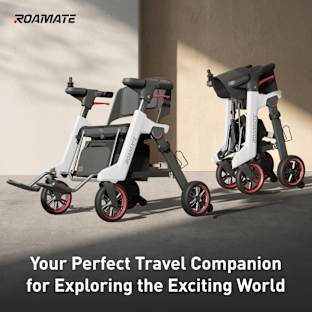About Me
My name is Rebecca Peters, and I am a fourth year student at UC Berkeley pursuing double majors in International Development and Economics (B.A.) and Society and Environment (B.Sc.) with a minor in Global Poverty. I spent ten weeks last summer from May to August in Cochabamba, Bolivia working as a partner with Water for People-Bolivia and the Foundation for Sustainable Development. I kept a blog (http://boliviawater.wordpress.com/) about my work while in the field, and have continued it since to facilitate ongoing discussion about the intersections of water, development, and gender.
More information about my work can be found here:
Project Summary
International policy discourses on human rights now routinely address gender disparities in both education and health. Yet despite these advances, the conversation often overlooks a significant site of inequity that brings together issues of gender, rights, education and health: the hygienic management of menstruation (MHM). Despite a clear connection between access to clean water and MHM, the topic is largely neglected by the water, sanitation, and hygiene (WASH) sector (WaterAid 2012). Furthermore, even though a 2011 United Nations Report[1] found that the stigma associated with menstruation is a root cause of discrimination and other rights violations, the human rights community has also paid scant attention to MHM when designing policies to advance girls’ human rights.
My research project, which will form the basis for my second honors thesis, will investigate how MHM can be appropriately incorporated into girl’s educational and physical environments in Cochabamba, Bolivia. In partnership with the non-profit organization Fundación Cántaro Azul, I will use interviews, community and school surveys, observation, and facilitated discussion to identify culturally appropriate avenues for MHM education initiatives. I will also compile the information I gather regarding MHM into a Spanish, English, and Quechua language report for use as an educational tool by government agencies, NGOs, and community groups. By fostering community discussion, education, and participation in MHM activities, I hope that my research will enable structural change on the communities’ term, while broadening understandings of the human rights connections to water, sanitation, and gender equity.
The word Pachamama means“mother world” in the Aymara and Quechua languages, and Pachamama is the goddess associated with fertility, land, and good harvests in the Andes. The Pachamama Project seeks to contribute to the realization of the human rights of gender equity and access to clean water and sanitation in Cochabamba, Bolivia with the long-term goal of improving female health and education through the hygienic management of menstruation.
The Impact
- Indicators for success and impact will be diversified to include quantitative (number of schools, children, and communities served; number of improved water sources; number of health clinics with educational information on MHM) and qualitative (participant observations for the use of educational and health materials; interviews with NGO members for project feedback) data;
- Compose a report translated into Spanish, Quechua, and English about MHM in Cochabamba to share with the community, NGOs, practitioners, and government members;
- Integrate diverse perspectives of MHM and WASH to contribute to understandings of the current state of water and human rights, gender inequality, education gaps, and health impacts associated with unhygienic management of menstruation;
- Improve understanding of MHM and WASH indicators in eight rural and peri-urban schools and two predominately migrant and indigenous communities that have expressed interest in the project (K’ara K’ara and Miraflores);
- Develop a Gender and Social Inclusion (GSI) Strategy to recommend to NGOs as an inclusive policy agenda that can be adopted as part of WASH-based interventions;
- Gather evidence that will contribute to understandings of the connections between weak human rights and poor access to water and sanitation, health, and education. Share this information with the Berkeley community by presenting in water-based classes on campus, at Berkeley Water Group meetings, in the Water and Human Rights DeCal that I teach, and WASH conferences;
- Ongoing monitoring and evaluation through Cántaro Azul's role as project supporters by integrating community feedback into the project’s ongoing goals.
Timeline and Activities
By May 2013, I will have completed a thorough literature review of MHM and its related health, education, and equity issues. Specifically, I will identify barriers that currently limit women and girl’s engagement in education, employment, and other activities to assess the scale of MHM issues while finalizing institutional arrangements with partner organizations. For ten weeks from June to August, I will go to Bolivia to meet with stakeholders and participants in MHM to discuss their roles. I will first select sites based on community interest in the project, then complete surveys in 70 households within the Zona Sur region. The surveys will assess qualitative and quantitative factors related to MHM and WASH including the number of days that girls miss from school and additional barriers that a lack of MHM causes (See Appendix – for the survey). This number of households is feasible based on the comparable number that I worked in last summer, and having roughly 35 households in two communities will provide sufficient sample sizes to gather meaningful data. I will redevelop and expand existing WASH curriculum that currently encompasses hand washing campaigns and hygiene in eight schools (half rural, half peri-urban) to include MHM. To complement the household survey component, I will also ask girls and boys in the schools to use disposable cameras to take photos of places they deem as safe or unsafe and use their photos to create a narrative for the community, local WASH organizations, and government officials. This interactive and creative part of the project allows the inclusion of the community youth in telling their own story of how they are impacted by the lack of safe facilities.
From September to November, I will return to Berkeley, meet bi-weekly with Cántaro Azul leadership, and engage ongoing community discussion through Water for People with existing water committees and other local NGOs. From December to March 2014, I will compile the report and share it with local government and water committee leaders to encourage further MHM integration and identify strategies for scaling up the project in the future. As I wrap up the research in April, I will complete a comprehensive analysis of community impressions of the project; produce a report on MHM; and establish partners interested in continuing the project in the future.
Budget - Where the money goes
Airfare - $1800 - Based on current projections of flight costs to Cochabamba through La Paz on vayama.com
Room and board - $1,600 - Based on cost of living with home stay family in Cochabamba for ten weeks with three meals per day
Travel consult and immunizations - $144 - Cost for UC Berkeley students with SHIP health insurance
Ground transportation - $300 - Based on previous costs for transit (buses, taxis) within Cochabamba to get to communities and schools
Visa - $135 - Information available from US Department of State visa information page (http://travel.state.gov/travel/cis_pa_tw/cis/cis_1069.html)
Disposable cameras - $240 - For the activity in schools; based on $3/camera for 80 groups of children at 8 different schools
Film development - $320- For 80 cameras, estimated cost of $4/camera to develop film based on the costs encountered last summer
Internet access - $500 - Based on cost of Viva internet cards and modem, needed for internet research and contacting partners when internet cafés are unavailable (http://www.vivagsm.com/3g/3-5g-usb)
Total: $5,039 (-$1000 from Center for Race and Gender, and -$1000 from other sources of funding I have applied for)
Seeking: $3,000 from Indiegogo
Other ways you can help
If you're unable to contribute financially, it doesn't mean you can't help!
- Help get the word out and make some noise about my campaign to friends and family!
- Use the Indiegogo share tools!




















































